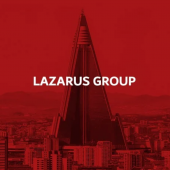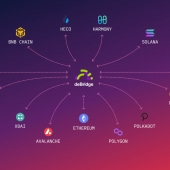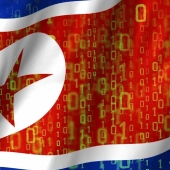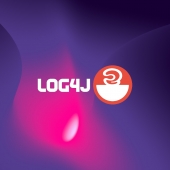-
US recovers $30 million stolen from Axie Infinity by Lazarus hackers
With the help of blockchain analysts and FBI agents, the U.S. government seized $30 million worth of cryptocurrency stolen by the North Korean threat group 'Lazarus' from the token-based 'play-to-earn' game Axie Infinity earlier in the year.
- September 08, 2022
- 01:04 PM
 0
0
-
North Korean Lazarus hackers take aim at U.S. energy providers
The North Korean APT group 'Lazarus' is exploiting VMWare Horizon servers to access the corporate networks of energy providers in the United States, Canada, and Japan.
- September 08, 2022
- 08:00 AM
 0
0
-
How 'Kimsuky' hackers ensure their malware only reach valid targets
The North Korean 'Kimsuky' threat actors are going to great lengths to ensure that their malicious payloads are only downloaded by valid targets and not on the systems of security researchers.
- August 25, 2022
- 06:33 PM
 1
1
-
North Korean hackers use signed macOS malware to target IT job seekers
North Korean hackers from the Lazarus group have been using a signed malicious executable for macOS to impersonate Coinbase and lure in employees in the financial technology sector.
- August 17, 2022
- 01:01 PM
 0
0
-
Maui ransomware operation linked to North Korean 'Andariel' hackers
The Maui ransomware operation has been linked to the North Korean state-sponsored hacking group 'Andariel,' known for using malicious cyber activities to generate revenue and causing discord in South Korea.
- August 09, 2022
- 11:00 AM
 0
0
-
deBridge Finance crypto platform targeted by Lazarus hackers
Hackers suspected to be from the North Korean Lazarus group tried their luck at stealing cryptocurrency from deBridge Finance, a cross-chain protocol that enables the decentralized transfer of assets between various blockchains.
- August 08, 2022
- 07:04 PM
 0
0
-
US sanctions crypto mixer Tornado Cash used by North Korean hackers
The U.S. Treasury Department's Office of Foreign Assets Control (OFAC) sanctioned Tornado Cash today, a decentralized cryptocurrency mixer service used to launder more than $7 billion since its creation in 2019.
- August 08, 2022
- 11:21 AM
 0
0
-
North Korean hackers target crypto experts with fake Coinbase job offers
A new social engineering campaign by the notorious North Korean Lazarus hacking group has been discovered, with the hackers impersonating Coinbase to target employees in the fintech industry.
- August 07, 2022
- 11:14 AM
 2
2
-
Cyberspies use Google Chrome extension to steal emails undetected
A North Korean-backed threat group tracked as Kimsuky is using a malicious browser extension to steal emails from Google Chrome or Microsoft Edge users reading their webmail.
- July 28, 2022
- 11:10 AM
 0
0
-
U.S. doubles reward for tips on North Korean-backed hackers
The U.S. State Department has increased rewards paid to anyone providing information on any North Korean-sponsored threat groups' members to $10 million.
- July 26, 2022
- 11:06 AM
 1
1
-
North Korean hackers attack EU targets with Konni RAT malware
Threat analysts have uncovered a new campaign attributed to APT37, a North Korean group of hackers, targeting high-value organizations in the Czech Republic, Poland, and other European countries.
- July 23, 2022
- 12:08 PM
 0
0
-
Hackers pose as journalists to breach news media org’s networks
Researchers following the activities of advanced persistent (APT) threat groups originating from China, North Korea, Iran, and Turkey say that journalists and media organizations have remained a constant target for state-aligned actors.
- July 16, 2022
- 11:07 AM
 0
0
-
Microsoft links Holy Ghost ransomware operation to North Korean hackers
For more than a year, North Korean hackers have been running a ransomware operation called HolyGhost, attacking small businesses in various countries.
- July 14, 2022
- 07:10 PM
 0
0
-
Hackers stole $620 million from Axie Infinity via fake job interviews
The hack that caused Axie Infinity losses of $620 million in crypto started with a fake job offer from North Korean hackers to one of the game's developers.
- July 12, 2022
- 02:03 PM
 2
2
-
US govt warns of Maui ransomware attacks against healthcare orgs
The FBI, CISA, and the U.S. Treasury Department issued today a joint advisory warning of North-Korean-backed threat actors using Maui ransomware in attacks against Healthcare and Public Health (HPH) organizations.
- July 06, 2022
- 10:47 AM
 0
0
-
Lazarus hackers target VMware servers with Log4Shell exploits
The North Korean hacking group known as Lazarus is exploiting the Log4J remote code execution vulnerability to inject backdoors that fetch information-stealing payloads on VMware Horizon servers.
- May 19, 2022
- 11:24 AM
 0
0
-
North Korean devs pose as US freelancers to aid DRPK govt hackers
The U.S. government is warning that the Democratic People's Republic of Korea (DPRK) is dispatching its IT workers to get freelance jobs at companies across the world to obtain privileged access that is sometimes used to facilitate cyber intrusions.
- May 17, 2022
- 06:16 PM
 0
0
-
The Week in Ransomware - May 6th 2022 - An evolving landscape
Ransomware operations continue to evolve, with new groups appearing and others quietly shutting down their operations or rebranding as new groups.
- May 06, 2022
- 06:27 PM
 0
0
-
US sanctions Bitcoin laundering service used by North Korean hackers
The US Department of Treasury today sanctioned cryptocurrency mixer Blender.io used last month by the North Korean-backed Lazarus hacking group to launder funds stolen from Axie Infinity's Ronin bridge.
- May 06, 2022
- 11:17 AM
 0
0
-
New ransomware strains linked to North Korean govt hackers
Several ransomware strains have been linked to APT38, a North Korean-sponsored hacking group known for its focus on targeting and stealing funds from financial institutions worldwide.
- May 03, 2022
- 06:31 PM
 1
1























